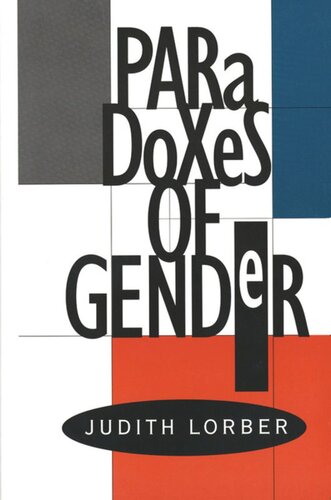Product desciption
Paradoxes Of Gender Judith Lorber by Judith Lorber 9780300153446, 0300153449 instant download after payment.
In this pathbreaking book, a well-known feminist and sociologistwho is also the Founding Editor of Gender & Societychallenges our most basic assumptions about gender. Judith Lorber views gender as wholly a product of socialization subject to human agency, organization, and interpretation. In her new paradigm, gender is an institution comparable to the economy, the family, and religion in its significance and consequences.
Drawing on many schools of feminist scholarship and on research from anthropology, history, sociology, social psychology, sociolinguistics, and cultural studies, Lorber explores different paradoxes of gender:
why we speak of only two "opposite sexes" when there is such a variety of sexual behaviors and relationships;
why transvestites, transsexuals, and hermaphrodites do not affect the conceptualization of two genders and two sexes in Western societies;
why most of our cultural images of women are the way men see them and not the way women see themselves;
why all women in modern society are expected to have children and be the primary caretaker;
why domestic work is almost always the sole responsibility of wives, even when they earn more than half the family income;
why there are so few women in positions of authority, when women can be found in substantial numbers in many occupations and professions;
why women have not benefited from major social revolutions.
Lorber argues that the whole point of the gender system today is to maintain structured gender inequalityto produce a subordinate class (women) that can be exploited as workers, sexual partners, childbearers, and emotional nurturers. Calling into question the inevitability and necessity of gender, she envisions a society structured for equality, where no gender, racial ethnic, or social class group is allowed to monopolize economic, educational, and cultural resources or the positions of power.


